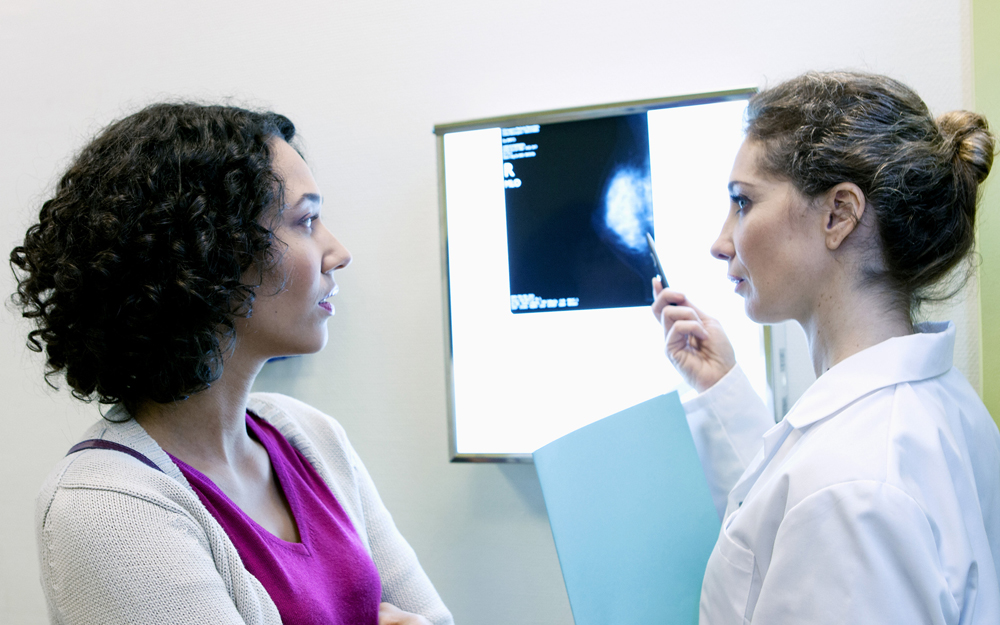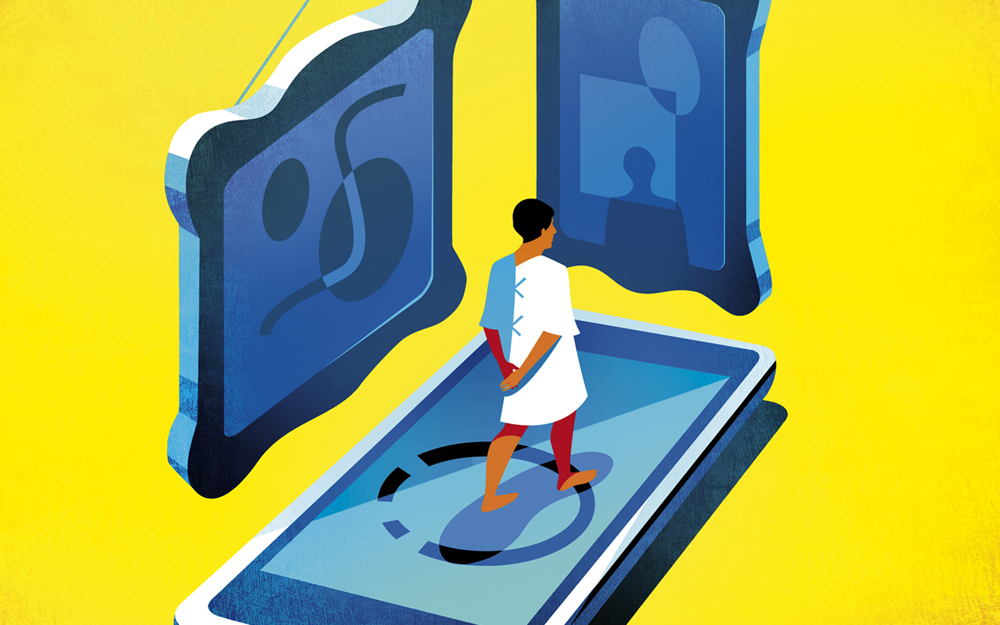Small Portions, Full Life
Date
October 22, 2020
Credits

Date
October 22, 2020
Credits
Medical providers featured in this article
In Brief
{{cta-block}}
Natalie Harris got her life back after receiving personalized treatment for Crohn's disease.
Grilled chicken and mashed potatoes.
For a year, these were the only foods Natalie Harris could eat without feeling like she was digesting shards of glass.
The Texas native was "stunned and scared" when she was diagnosed with Crohn’s disease in 1996, at age 22. A vibrant, athletic woman who was about to launch a marketing career with a major home-building company, Harris feared this illness—an acute form of inflammatory bowel disease (IBD)—would deprive her of a life filled with satisfying work, concerts, travel, football games and rigorous workouts.
She allowed some tears, then brushed them away and began to fight. Treatment wasn’t working, so she began a nationwide search for leading experts in Crohn’s disease.
This led her to Los Angeles in 1998 to consult with Stephan Targan, MD, director of the F. Widjaja Foundation Inflammatory Bowel and Immunobiology Research Institute at Cedars-Sinai and the Feintech Family Chair in Inflammatory Bowel Disease. Targan changed the way doctors everywhere think about IBD. He discovered that it’s not just one disease but encompasses many subtypes based on various immune system responses and genetic variations. His revelation paved the way for more precise diagnosis and treatment tailored to each patient’s biological makeup.
Crohn’s disease patients once faced a lifetime of unpredictable flareups of chronic, debilitating symptoms such as diarrhea, abdominal cramps and gastrointestinal bleeding. Targan’s determination to ease patients’ suffering and improve their lives led to development of biologic therapies that can effectively control symptoms—and even put the disease in remission.
"He helped my whole family understand there’s no one-size-fits-all treatment for Crohn’s disease," says Harris, now 46. "He told me he was going to figure out what would work best for me, and the goal was for me to have a healthy, happy life."
For more than two decades, Harris has traveled back and forth from Texas to Southern California as Targan keeps her condition under control with a closely monitored medication regimen. She does her part by getting enough rest, exercising and watching her diet. This means eating small portions, but Harris enjoys a variety of foods and leads a full life.
In 2014, however, she suffered a major setback, as a blockage in her colon led to serious complications. Her parents and sister relocated to Southern California to be with her throughout treatment.
Two surgeries and two years later, with Targan’s continued care, "I got my life back," Harris says.
She still works and works out. She has participated in walks—and even a half marathon—to raise funds for research on Crohn’s disease. Her two cocker spaniels also keep her active.
"Today, I’m in the best shape I’ve ever been in," Harris says. "I want everyone with IBD to know there’s hope. You can make the best of every day, and you can have an amazing life."





